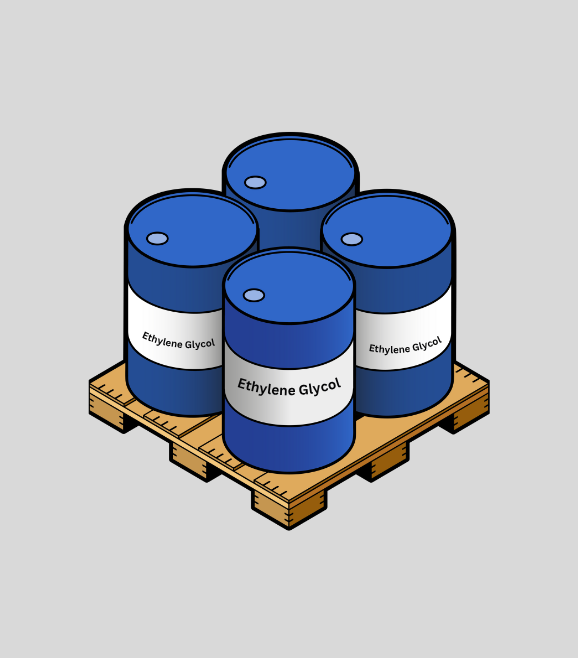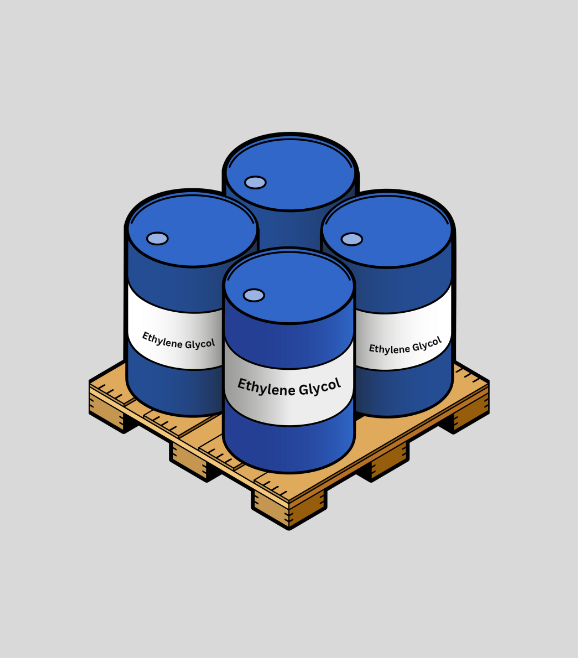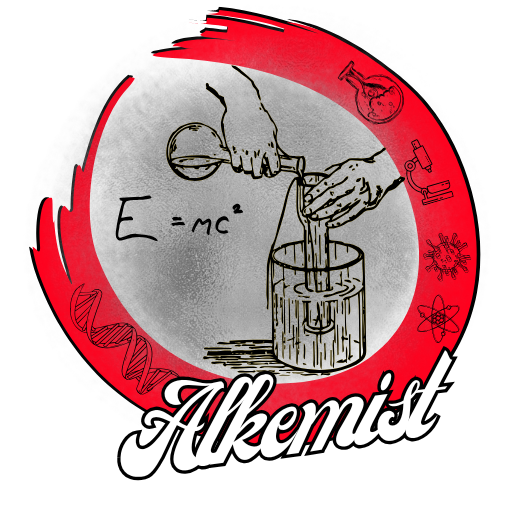


Serving Areas:
Ethylene Glycol (Monoethylene Glycol, MEG) is a vital organic compound supplied by Alkemist KSA. As a leading wholesale dealer, we provide high-purity, industrial-grade Ethylene Glycol, which is essential for manufacturing polyester fibers and resins, and is widely known for its use as an automotive antifreeze and industrial coolant.
DANGER: HARMFUL IF SWALLOWED. Ethylene Glycol is toxic to humans and animals. Ingestion can cause severe damage to the central nervous system, heart, and kidneys, and can be fatal. Avoid all contact with skin and eyes. Always use in a well-ventilated area with proper personal protective equipment (PPE). Request the MSDS for full safety details.
The primary difference is toxicity. Ethylene Glycol is toxic and is used in industrial applications like automotive antifreeze where there is no risk of ingestion. Propylene Glycol has very low toxicity and is used in applications where contact with food or skin is possible, such as in food processing coolants and cosmetics.
When mixed with water, Ethylene Glycol disrupts the hydrogen bonding between water molecules. This significantly lowers the freezing point of the mixture, preventing the water in an engine's cooling system from freezing and causing damage in cold climates. It also raises the boiling point, preventing boil-over in hot climates.
No, pure Ethylene Glycol is not an effective coolant and actually has a higher freezing point (-12°C) than a mixture with water. The optimal freeze protection is typically achieved with a 60/40 or 50/50 mixture of Ethylene Glycol and water.
Ethylene Glycol is a primary monomer used to produce Polyethylene Terephthalate (PET). PET is a strong, lightweight, and clear plastic that is widely used to make beverage bottles, food jars, and polyester fibers for clothing.
Due to its toxicity, especially to pets who may be attracted to its sweet taste, spills should be cleaned up immediately. Absorb the spill with sand, cat litter, or another inert material. Dispose of the waste in accordance with local environmental regulations. Never wash a spill into a storm drain.
